| All Artists: Mississippi Sheiks Title: Honey Babe Let the Deal Go Down: Best of Members Wishing: 8 Total Copies: 0 Label: Sony Release Date: 5/4/2004 Album Type: Original recording remastered Genres: Country, Blues, Folk, Pop, Classical Styles: Classic Country, Traditional Blues, Acoustic Blues, Traditional Folk, Instruments, Strings Number of Discs: 1 SwapaCD Credits: 1 Other Editions: Honey Babe Let the Deal Go Down: Best of UPCs: 074646570920, 007464657092 |
Search - Mississippi Sheiks :: Honey Babe Let the Deal Go Down: Best of
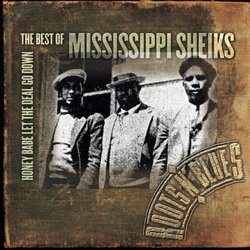 | Mississippi Sheiks Honey Babe Let the Deal Go Down: Best of Genres: Country, Blues, Folk, Pop, Classical
|
Larger Image |
CD DetailsSimilarly Requested CDs
|
CD ReviewsStop and Listen Tony Thomas | SUNNY ISLES BEACH, FL USA | 12/24/2008 (4 out of 5 stars) "Too much thinking about the blues echoes what white post folk revival blues fans have romanticized about it. Indeed there is now a literature of great work explain how all of this is wrong. The blues emerged not as a music for concert and cabaret performance by solo performers presenting their angst, existential weariness, and sadness, but as a dance music played at country suppers, juke joints, and wherever people wanted to move their feet to the new dances that flooded from the Black South to the rest of the country and beyond in the first thirty years of the twentieth century. While the folk music origins of many misconceivers of the blues cast Blues performers as "pure" amateurs straight from the cotton fields playing "primitive" music, by the late 1920s and the 1930s when these records were made, the blues were being performed by seasoned professionals who had been making a living playing the music for decades. The Sheiks were one form that the music of the Chatmon family took. They were a family of professional musicians. Every adult and every child and cousins and outside children like Charlie Patton learned two or three instruments, could tell jokes and could probably cut a step dancing. The Chatmons supplied every kind of music that their consumers white, Black, rural, urban, Mississippi, or up North wanted. Although not represented in any of these recordings, they made much of their money playing old time music for the white audiences and fairs that had more money in segregated Mississippi than the Black audiences. Several of them as individuals as well as the band all together recorded several records of white-oriented string music that released as "white" music under assumed names. These recordings are part of how the Sheiks approached Black audiences in the South and Throughout the country, for the Mississippi Sheiks did some gigs in nightclubs in big Northern Cities, as well as being one of the top groups of their time in Mississippi. Blues came in not only by itself, but along with a lot of popular and folk music that relates to Ragtime which was the dominant popular music out of which Jazz and most modern popula rmusic emerged. The Sheiks music combines much more of that Raggy beat than much Mississippi blues, or than the solo work Bo Chatman and other did in the 1930s. While not represented on any of their recordings, the Sheiks were apparently able to serve up Jazz to audiences they thought wanted Jazz. The combination of fiddle and guitars which marked them was actually the most common dance combination in the south in the 1920s and early 1930s. Unlike the five-string banjo which simply could not serve the beats required by Black blues dancers, the fiddle was an ideal instrument for the blues and remained a part of urban and rural Black blues until the music went electric, despite the fact that European American record producers and A & R men thought fiddles old fashioned. The Sheiks" music has an entire air of popular music with influences from crooners and jazz and a bouncy beat that expresses the same origin as well. Their music is both more danceable and more accessible than other blues players, especially the line of players from Charlie Patton (allegedly half a Chatmon), Son House, Robert Johnson, and Muddy Waters. At the same time it lacks some of the elementary Africanness that the early Muddy or almost all of John Lee Hooker provide. No home should be without the music of the Mississippi Sheiks." Best of the Mississippi Sheiks in Song Viv | Madison, MS United States | 01/31/2009 (4 out of 5 stars) "The clarity of these songs is kin to a brand-new recording. Words are easily understood. One of the best historic recordings I've ever heard."
|

 Track Listings (20) - Disc #1
Track Listings (20) - Disc #1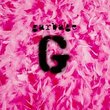
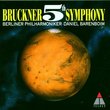
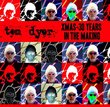

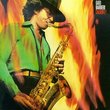
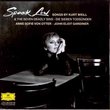

![Seussical [2000 Original Broadway Cast]](https://nationalbookswap.com/cd//m/02/4802/514802.jpg)